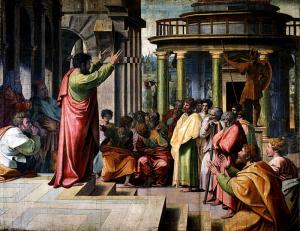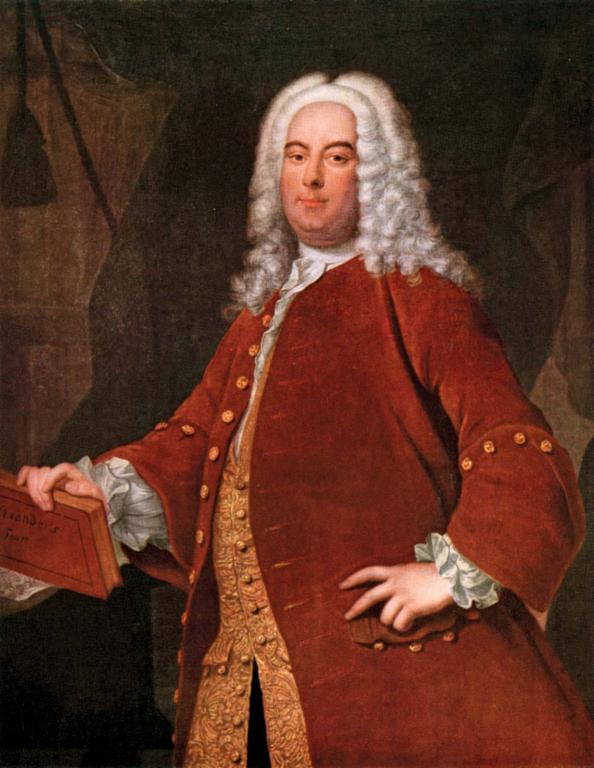Who was C.S. Lewis? Why did this man leave such a huge impact on Christianity?
Who was C.S. Lewis?
Clive Staples Lewis or C.S. Lewis (1898-1963) may have been the greatest writer of his time, producing myriads of books, very much like those of his close friend, J.R.R. Tolkien who wrote the trilogy of “The Hobbit,” “The Lord of the Rings,” and “The Silmarillion.” Both men would later serve on the Oxford University faculty and in World War One. When Lewis mother died while he was only 10, he was sent to Belfast, Ireland so he could attend Wynyard School, and while there, he began to drift away from his earlier, so-thought conversion and baptism while he was still young. When Lewis fell ill he had to move to a health resort at Malvern, Worcestershire, and it is there, at age 15, that he fell away from the faith and proclaimed himself an atheist. He became intensely interested in mythology and the occult. He was enthralled with the ancient literature of the Scandinavians and later, the Norse mythologies. He also immersed himself into Greek literature. When he was shipped off to France during World War One, just after having entered Oxford university, it was there that he saw the graphic and morbid violence of war and how it took the lives of so many. That made him even more determined to claim atheism. It was only later that Tolkien and a few others convinced him to return to the Anglican Communion and so he did, and at age 32, he came to believe as he had never really believed before. That was when he felt an overpowering call towards Christian literature.
Books of Impact
When C.S. Lewis began to feel the passion to write books, it wasn’t long (mid-1920s) before he wrote his very first one, “Dymer” (1926), a satirical look at life, and then “The Allegory of Love” (1936), but this was only a period of training for the books that he would later write and these books would change the Christian culture forever. He wrote “The Screwtape Letters,” “The Chronicles of Narnia,” and “The Space Trilogy,” and several non-fiction books that dealt with Christian apologetics, such as “Mere Christianity,”, “Miracles,” and “The Problem of Pain.” It was when he began writing his apologetic books that people really began to take notice of Lewis and his accomplishments.
Apologetics
One of C.S. Lewis’ greatest strengths as a writer was his ability of logic and reason. This served him well in his apologetics. He inherently knew there were dozens of reasons to believe in God but one of his strongest objections for the argument of there being no God was his “Moral Argument” for God’s existence and it is something like this:
1. If God does not exist, objective moral values and duties do not exist.
2. Objective moral values and duties do exist.
3. Therefore, God exists.
To Lewis, there are so many laws that govern human behavior and activities that it is obvious that objective moral values do exist, not in the least for the governments of the world. To him, the moral objectives clearly reflected the Moral Lawgiver, Who is God. His point was that objective morals and values are more than accidental or random chemical reactions in the brain. He couldn’t understand why atheists could be sure God doesn’t exist. Since it is estimated that humans only know about one-half of one percent of all the knowledge that there is to know, could not God exist in that 99.9% of knowledge that’s missing? Lewis never understood how an atheist could know for certain that there is no god when they are unable to prove it.
Lewis’ Later Life
By early June of 1961, Lewis began suffering from kidney inflammation which resulted in blood poisoning. After what appeared to be a full recovery in 1963, in mid-July of that year he fell ill again, but this time it was considerably more serious. When he finally entered the hospital, he experienced a heart attack and fell into a coma. They must have thought that this was the end of Lewis’ life but he unexpectedly awoke and was later discharged from the hospital. He was feeling just fine for a while when suddenly, just one week before he would turn 65, he would collapse and die (Nov 22nd, 1963). Tragically, few people knew of Lewis’ death because that was the same day that John F. Kennedy died after being assassinated and that event captured all of the world’s attention, and so Lewis’ death was overshadowed by another.
Conclusion
C.S. Lewis became of the intellectual giants of the 20th century. Today, he is still among the best-selling authors of Christian literature and many of his books have been turned into movies. C.S. Lewis’ life left such a legacy and impact that, most people know his name, they know some of the movies that came from his books, and he is still well-respected and admired around the world by millions as his books have been translated into more than 30 languages with books that have sold well into the millions.
Article by Jack Wellman
Jack Wellman is Pastor of the Mulvane Brethren Church in Mulvane Kansas. Jack is also the Senior Writer at What Christians Want To Know whose mission is to equip, encourage, and energize Christians and to address questions about the believer’s daily walk with God and the Bible. You can follow Jack on Google Plus or check out his book Teaching Children the Gospel available on Amazon.
1. C. S. Lewis, Mere Christianity. Harper San Francisco, Zondervan Publishing House, 2001, p. 38-39.












